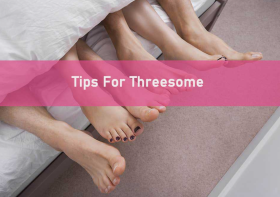Online Dating Stigma Shame and Dating App Denial

Whether you are a member of an Online Dating Stigma site or a person who uses dating apps, you have probably noticed that there is a stigma associated with dating. The stigma can be in the form of harassment, or the denial of dating to someone who has a sexually transmitted disease.
1. Harassment from homophobes and transphobes
Several recent studies have investigated the experiences of individuals who experience sexually or gender-based harassment and abuse in the digital context. While some have focused on the experiences of LGBTQ adults, fewer studies have examined experiences of transgender and gender-minority adults. These findings highlight the importance of research on sexuality and gender minority adults and suggest that further research is needed.
Researchers conducted an investigation to determine the lifetime prevalence of 26 behaviours associated with five subtypes of digital harassment. The findings indicated that the risk of victimization was higher for LGBT and LGB participants than for male or female participants. The results also show that there are distinct patterns in the experiences of sexuality and gender minority adults and heterosexual participants.
Homophobia, for example, refers to the fear of homosexuals. It takes various forms, including prejudice against homosexuals, aversion to homosexuals, and discrimination based on homosexual orientation. Some forms of homophobia are irrational and may be rooted in family teachings. Others are rooted in conservative religious beliefs.
In contrast to homophobic harassment, there are numerous types of harmful sexually aggressive behaviours that can be perpetrated in the digital context. These behaviors can include image-based sexual abuse, coercion, sexual aggression, and psychological violence.
The results of this study provide an important understanding of how individuals experiencing homophobic and/or transphobic harassment may experience digital communications. It also highlights gaps in the empirical literature and suggests that similar patterns of harassment and abuse may exist in the digital context.

2. Disadvantages of dating apps
Using a dating app can lead to false hopes, heartbreak, and self-doubt. A recent study by Pew Research Center found that online dating is not as effective as people thought. They found that seven out of ten people have encountered a lie while using an online dating site. The study also found that there were no real emotional connections.
In addition to this, a lot of online dating apps are designed for casual hookups, which are not as effective at finding long-term relationships. A good relationship requires a lot of trust. A dishonest user may benefit from this trust.
Some online dating sites offer premium membership, but the prices vary by website. It is always a good idea to check the price of a premium membership before signing up. You should also check if the website you are considering offers free access.
Several free dating apps exist. These may be fraudulent or simply a means for people with bad intentions to join the site. You can find out if a site has scams by using a tool such as The Absolute Dater.
Most dating apps are free to use, but there are some that require users to verify their identity before becoming a member. It is a good idea to report suspicious users. Online Dating Stigma Some may be lying about their education, sexuality, or income. You might not know if they are lying until you actually meet them in person.
It is not hard to create a profile and upload some photos. You can also search by age, gender, and location. The layout can be very small, which can make browsing very tedious for first-time users.
Many dating apps offer filters to help you narrow your search. You can also choose to limit your results to people within a certain geographic location. You can also filter by appearance, hobbies, and even dating preferences.

3. Weight control behaviours among users
Despite the fact that dating apps have been around for a while, there is not a ton of research on the topic. Although the fad is on, we are still no closer to knowing just how harmful or beneficial dating apps are for our health. As a result, it is best to be aware of the potential dangers and pitfalls. For starters, a dating app is an apt vehicle to ogle your prospective paramour. It also serves as a handy platform to compare yourself with your peers. Thus, it is no wonder that users of such apps tend to be self-conscious and overweight.
It is also a safe bet that those who are in the dating game will be more likely to engage in the more esoteric behaviors of the sexes. For example, one study showed that men are more likely to consume diet pills and engage in unhealthy weight management practices. Likewise, women are more susceptible to consuming laxatives and utilizing the triumvirate of steroids, laxatives, and diet pills. As a result, a healthy dating app can have a detrimental impact on overall health and wellness. The best way to prevent such negative effects is to avoid dating apps altogether.
Lastly, the most impressive feat of all is not the use of a dating app, but the discovery of one’s true self. For some, this can lead to depression and suicidal tendencies. However, it can also be a gateway to a more fulfilling and healthy lifestyle. As such, it is no surprise that dating apps are a hot topic of discussion in the modern age. In fact, the newest survey to examine the subject, known as the Healthy Weight Management Behaviors Survey, surveyed over 2500 adults.
4. Emotional implications of being diagnosed with an STD
Getting a positive STI diagnosis is a frightening experience. It can lead to a variety of emotions, including shame, guilt, and embarrassment. The negative feelings can negatively affect the way that you think, act, and treat yourself. These emotions can also act as a barrier to accessing healthcare.
It is important to talk to your doctor or health care provider about the symptoms of STDs and whether or not you need treatment. The proper treatment can have minimal impacts on your health. If you have unusual symptoms, see your doctor immediately. You may also want to consult a therapist or support group for additional help.
A number of studies have investigated the emotional impact of being diagnosed with an STD. The researchers found that women felt greater shame after an STI diagnosis than men Online Dating Stigma. In addition, people with a stigmatized STI are less likely to follow through with treatment. They may want to blame someone else for their illness, or they may dread consulting a healthcare professional.
The findings suggest that there is a need for further research on STI-related shame. The authors note that young adults are often embarrassed to admit that they have no knowledge about STIs, which can undermine their willingness to test for and treat a condition. They are more likely to maintain the same behavior, including unprotected sex, after a STI diagnosis.
Many respondents stated that they were afraid to disclose their positive STI diagnosis to their partners. Other respondents reported that they felt guilty for failing to notify their partners. In addition, respondents were concerned about what their partner would think about their STI status, and whether or not they should tell their parents.
Despite the negative effects that a positive STI diagnosis can have on your self-confidence and your relationship, you should not give up on your current treatments. If you suspect that you have an STD, seek immediate medical attention.


